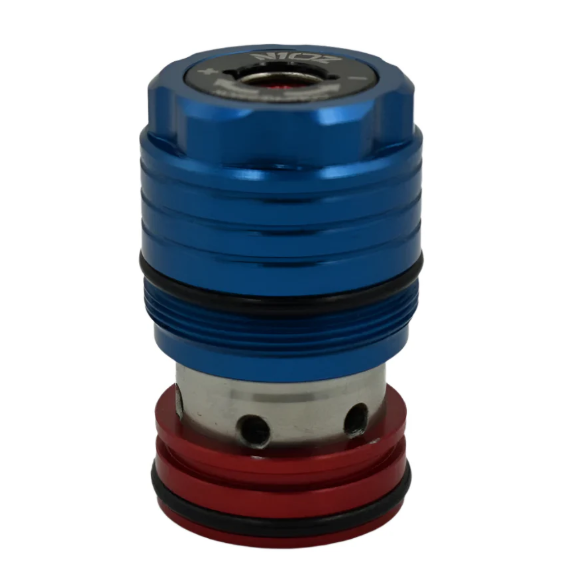Marketplaces have become the backbone of the digital economy, connecting buyers, sellers, and service providers across industries. From global e-commerce giants to niche B2B platforms, success is no longer about simply bringing parties together—it is about creating seamless, scalable, and intelligent ecosystems. Custom platforms are the engines behind this transformation, enabling businesses to meet unique operational needs, personalise user experiences, and stay competitive in an era of rapid digital change.
The Rise of Digital Marketplaces
Digital marketplaces are evolving far beyond online storefronts. Today, they function as ecosystems where trust, transparency, and technology intersect. Several factors have fueled their rise:
1. Shifting Consumer Behaviour
Customers increasingly expect convenience, personalization, and transparency. Marketplaces provide an all-in-one experience where choices are abundant, and decision-making is simplified.
2. Global Connectivity
With internet penetration and mobile adoption surging, even small businesses can tap into international demand. This connectivity has opened up new opportunities for regional and cross-border marketplaces.
3. Industry Diversification
Marketplaces are no longer limited to retail. Healthcare, logistics, education, finance, and professional services are leveraging platforms to enable secure and efficient transactions.
4. Investor Confidence
The marketplace business model has attracted massive investments, thanks to scalability and recurring revenue opportunities. This financial backing has encouraged entrepreneurs to build niche and specialized platforms.
5. Technology Democratization
Cloud computing, APIs, and modular architecture make it easier and more cost-effective for businesses to create custom platforms tailored to their audience.
Why Custom Platforms Outperform Generic Solutions
Custom-built platforms give businesses a competitive advantage compared to off-the-shelf solutions. They are designed to address specific operational challenges, improve efficiency, and align with brand identity.
1. Tailored User Experience
A custom platform allows businesses to design user journeys that reflect the preferences of their target audience. This results in higher engagement, satisfaction, and loyalty.
2. Seamless Integrations
Unlike rigid off-the-shelf tools, custom solutions can integrate with existing ERP, CRM, and payment systems, creating a cohesive workflow without data silos.
3. Scalability for Growth
Marketplaces experience rapid traffic fluctuations. Custom platforms are built to scale, ensuring smooth performance during seasonal spikes and business expansion.
4. Advanced Security Protocols
Trust is paramount in marketplaces. Custom platforms enable implementation of advanced compliance standards and multi-layered security mechanisms tailored to industry needs.
5. Cost Efficiency in the Long Term
While initial investments may be higher, custom solutions reduce dependency on third-party licensing, minimize inefficiencies, and lower long-term costs.
6. Competitive Differentiation
Generic platforms make it difficult to stand out. A custom-built system reflects brand values and enables innovative features that competitors cannot easily replicate.
Key Features Driving Marketplace Success
The features of a marketplace directly influence adoption rates and long-term sustainability. Custom platforms empower businesses to prioritize the functionalities that matter most.
1. Personalized Dashboards
Buyers and sellers can track transactions, performance, and preferences through dashboards that adapt to their unique requirements.
2. Secure Payment Gateways
Custom platforms integrate multi-currency and multi-payment gateways to support global expansion while ensuring compliance with international standards.
3. AI-Powered Recommendations
Artificial intelligence analyzes user behavior to deliver product suggestions, boosting sales and improving discovery.
4. Real-Time Analytics
Marketplaces thrive on data. Custom dashboards provide businesses with real-time insights into trends, customer behavior, and sales performance.
5. Vendor and Buyer Verification
Trust is built through robust verification systems, including KYC, digital signatures, and document validation processes.
6. Mobile Accessibility
With smartphones driving digital adoption, mobile-first marketplace platforms ensure accessibility anytime, anywhere. Businesses leveraging expertise like mobile app development services in Dubai have been able to reach global audiences more effectively, ensuring smooth user experiences across devices.
How Custom Platforms Drive Efficiency in Operations
Efficient back-end operations are just as critical as user-facing features. Custom platforms empower businesses to streamline processes and scale sustainably.
1. Automated Workflows
Tasks such as onboarding, inventory management, and payment settlements can be automated to reduce manual effort and errors.
2. Centralized Data Management
Instead of fragmented systems, custom platforms centralize data, enabling better decision-making and compliance reporting.
3. Multi-Role Access Controls
Admin, vendor, and customer roles can be configured with varying permissions to ensure operational clarity and security.
4. Integration with Logistics
For marketplaces dealing in physical goods, integration with logistics and delivery providers ensures real-time order tracking and smoother fulfillment.
5. Inventory Synchronization
Vendors can sync stock levels with their warehouses, ensuring accuracy and reducing overselling issues.
6. Enhanced Support Systems
Custom helpdesk modules, chatbots, and knowledge bases improve query resolution times and enhance trust.
Case Studies of Marketplace Success Through Custom Platforms
1. Retail Marketplaces
Niche fashion and lifestyle marketplaces often rely on tailored recommendation engines and multi-vendor integrations to deliver personalized shopping experiences.
2. Healthcare Platforms
Medical marketplaces require HIPAA-compliant security and integrations with telemedicine or pharmacy services. Custom solutions ensure patient trust while streamlining healthcare delivery.
3. Logistics and Transportation
Custom logistics marketplaces connect shippers with carriers, offering real-time route optimization, GPS tracking, and transparent pricing models.
4. Education Platforms
E-learning marketplaces depend on features like virtual classrooms, adaptive assessments, and certification systems—all achievable through customization.
5. Fintech Marketplaces
Financial marketplaces require robust fraud detection, cross-border compliance, and real-time settlement modules—features rarely available in off-the-shelf products.
6. Service Aggregators
From home services to freelance platforms, service aggregators thrive on custom-built scheduling, verification, and payment features.
The Future of Marketplace Platforms
The next decade will redefine how marketplaces operate, with innovation centered around personalization, security, and connectivity.
1. Artificial Intelligence Expansion
From smart recommendations to predictive analytics, AI will shape personalized marketplace experiences.
2. Blockchain Adoption
Decentralised platforms will enhance trust by enabling immutable transaction records and smart contracts.
3. Hyper-Personalization
Platforms will leverage data to create uniquely tailored buyer and seller journeys.
4. IoT-Enabled Marketplaces
Smart devices will link physical products and digital platforms, especially in retail and logistics marketplaces.
5. Cloud-Native Architectures
Future platforms will rely on serverless and microservices architecture to ensure flexibility and scalability.
6. Cross-Border Accessibility
With globalization accelerating, custom platforms will play a key role in ensuring compliance with regional laws while enabling global trade.
Conclusion
Custom platforms are no longer optional—they are the foundation of successful digital marketplaces. By tailoring user experiences, improving back-end efficiency, and enabling future-ready innovation, these platforms empower businesses to thrive in a competitive digital economy. Whether in retail, healthcare, education, or fintech, the success stories are proof that customisation drives scalability, profitability, and trust.
FAQs
1. What makes custom platforms more effective for marketplaces?
Custom platforms allow businesses to build features and workflows tailored to their unique audience, ensuring better user experiences, seamless integrations, and scalability that off-the-shelf solutions cannot provide.
2. How do custom platforms enhance security in marketplaces?
They integrate advanced security features like encryption, multi-factor authentication, KYC, and compliance standards specific to industries such as healthcare and finance.
3. Can small businesses benefit from custom marketplace platforms?
Yes. Small businesses can use custom platforms to focus on niche audiences, streamline operations, and differentiate themselves from larger competitors with unique features.
4. What role does mobile accessibility play in marketplace success?
Mobile accessibility ensures that users can access marketplace services anytime, anywhere, increasing engagement, reach, and conversion rates.
5. How do custom platforms support marketplace scalability?
They are built with flexible architectures that can handle traffic surges, integrate new services, and expand into global markets without compromising performance.
6. What trends will define the future of marketplace platforms?
AI-driven personalization, blockchain integration, cloud-native scalability, and cross-border compliance will shape the next wave of marketplace success.




